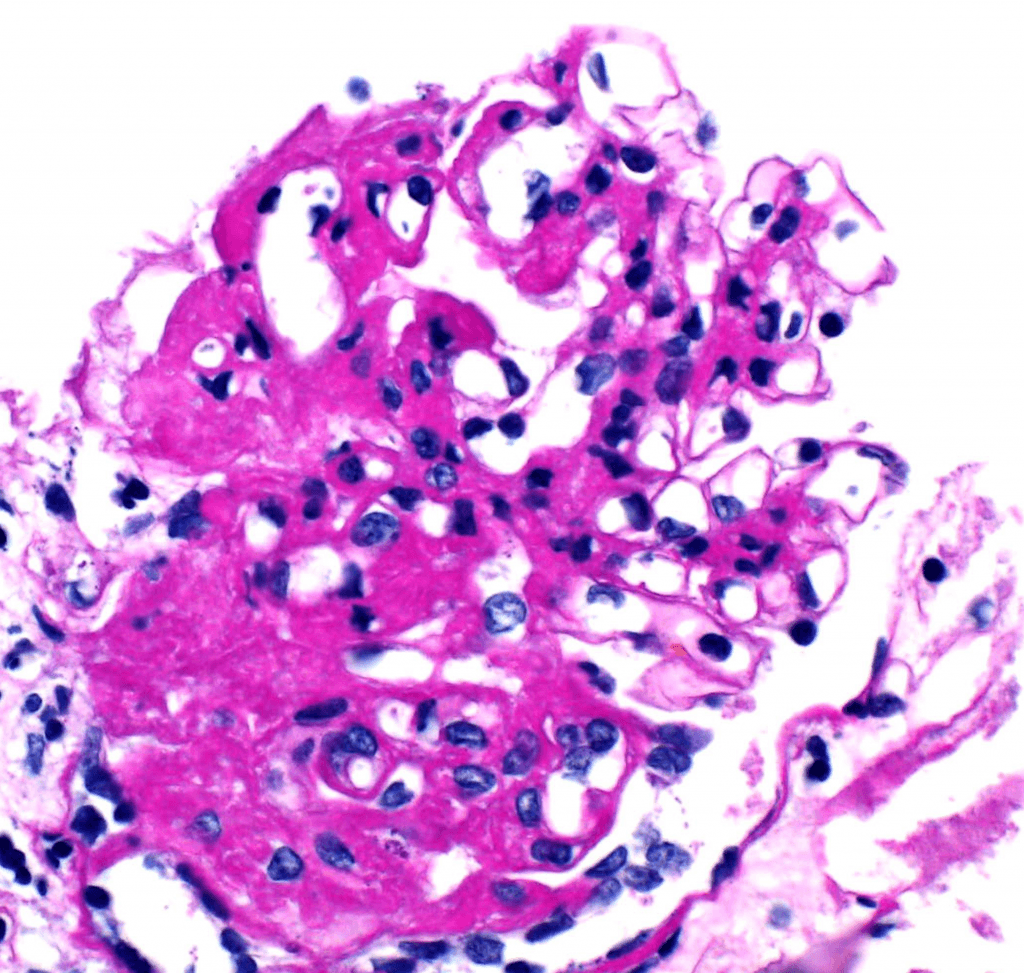APOL1-mediated kidney disease background
Kidney failure occurs in Black Americans about 4 times as much as it does in White Americans. There are many reasons for this increased risk, including genetic changes known as "risk variants" that were discovered in 2010 in the APOL1 gene.

Download the No Cost to Patient APOL1 Genotyping Requisition and Informed Consent Form
What is APOL1?
APOL1 normally plays a role in immunity and is specifically protective against the trypanosoma parasite that causes African sleeping sickness. The APOL1 gene evolved specific changes over the past 10,000 years in people in parts of Africa that provide increased protection from this parasite. People who have moved outside of Africa have taken these genetic variants with them. While these APOL1 variants are protective from parasite infection, people with two APOL1 variants, also known as “kidney risk variants,” have an increased risk for kidney disease.
Today, APOL1 risk variants occur in people of African ancestry who may self-identify as Black, African American, African, Afro-Caribbean, Hispanic, or Latino. It is important to think broadly about ancestry since many people do not know their genealogy. Approximately 13% of Black Americans have two APOL1 kidney risk variants compared to less than 0.1% for other races. It is estimated that about 15% – 20% of patients with two APOL1 kidney risk variants will develop kidney disease in their lifetime.
What are the APOL1 risk variants?
The two APOL1 risk variants are best known as G1 and G2. G1 is a two-sequence variant locus consisting of c.1024A>G and c.1152T>G. The G2 allele is a 6-base pair (TTATAA) deletion; c.1164_1169del. The G1 and G2 alleles almost never occur on the same chromosome. Therefore, an individual can carry no more than two risk alleles. The locations of two risk alleles in the APOL1 gene are separate but close together. If these locations are unmutated or “wildtype” they are designated “G0.” Only patients who are homozygous for APOL1 risk variants are at increased risk of kidney disease and any combination of two risk variants confers risk. Thus, risk genotypes include G1/G1, G1/G2, and G2/G2. Patients with a wild type G0 allele, including G0/G0, G0/G1, G0/G2, are not currently considered increased risk**.
What are my patient’s chances of developing this disease?
The risk of kidney-related disease depends on the presence of two APOL1 risk alleles. The reason for incomplete kidney disease penetrance is not completely understood, though environmental “triggers” are frequently associated with the disease. These triggers include things such as hypertension, lupus, interferon treatment, sickle cell disease, and viral illness (e.g. HIV, COVID-19).
How is APOL1-mediated kidney disease treated (AMKD)?
There are no currently approved treatments specific to APOL1-mediated kidney disease. While there is a current standard of care treatment for kidney patients, there are no targeted therapies for AMKD and these patients often progress.
Why should a person undergo genetic testing if APOL1-mediated kidney disease is suspected?
Testing for APOL1 kidney risk variants is performed to further determine what is causing kidney disease in patients of African ancestry before attributing it to other causes, like high blood pressure. The knowledge that APOL1 is the cause of disease would allow specific treatments and/or potential enrollment in clinical trials when they become available. Additionally, the diagnosis of APOL1-mediated kidney disease provides prognostic information and could be important in evaluating kidney donors with African ancestry. Vertex Pharmaceuticals is sponsoring the No Cost to Patient APOL1 Genotyping Program to provide an Arkana Laboratories APOL1-risk variant test to eligible* patients. This test is performed by sending a swab from the inside of the cheek for testing.
Will my patient be able to speak with a genetic counselor?
Metis Genetics is working with Arkana Laboratories and Vertex Pharmaceuticals to provide pre-test genetic counseling to eligible* patients. For eligible* patients, a genetic counselor will review the benefits and limitations of genetic testing and help them decide if genetic testing, specifically APOL1 testing, is right for them. Genetic counseling is available before genetic testing and after your patient receives their results if they test positive for the APOL1 high risk variants.
Vertex Pharmaceuticals will cover the cost of genetic counseling for eligible* patients. Patients and healthcare providers are not required to order, purchase, and/or obtain any services from Arkana Laboratories, Metis Genetics, or Vertex Pharmaceuticals if patients speak to a genetic counselor through this program.
*Who is eligible for the No Cost to Patient APOL1 Genotyping Program?
APOL1-risk variant testing is available at no cost to patients who meet all the following criteria:
- African ancestry including those who self-identify as Black, African American, African, Afro-Caribbean, Hispanic, or Latino
- Presence of either protein in urine or decreased kidney function (CKD Stages 1-4)
- Absence of diabetes
- Not currently on dialysis and no history of kidney transplant
Are my patient’s test results and personal information protected?
Yes. Your patient’s personal information is protected by the Federal Health Portability and Accountability Act of 1996 (HIPAA).
Requisition and Informed Consent Form
Contact us to learn more about the No Cost to Patient APOL1 Genotyping Program
Contact UsReferences & Resources
- APOL1-Associated Nephropathy: A Key Contributor to Racial Disparities in CKD Read Publication
- The evolving story of apolipoprotein L1 nephropathy: the end of the beginning Read Publication
- **Association of Trypanolytic APOL1 Variants with Kidney Disease in African-Americans Read Publication
- Kidney disease and APOL1 Read Publication